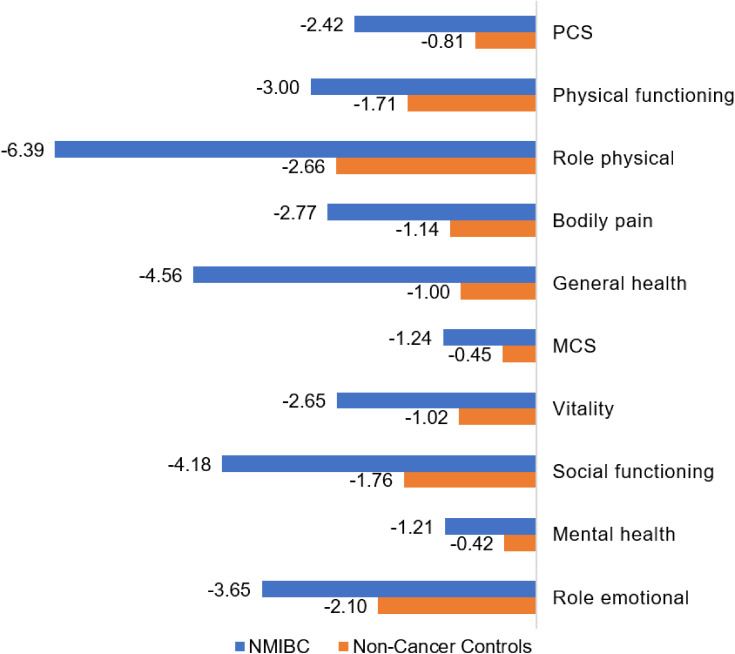Figure 3.
Decline in NMIBC HRQoL 2 years post-diagnosis on the SF-36* versus the general population**.
Notes: *Weighted-average scores were calculated across studies; due to the small number of studies reporting SF-36 data at the same time points, other selection criteria, such as similar study design, were not applied. **Non-cancer controls were propensity-score matched to patients. Data from these studies.43,44 Changes in SF-36 PCS and MCS scores of ≥5 points are considered clinically meaningful. Brisbane et al, excluded patients with prior cystectomy, whereas Smith et al, did not. When comparing SF-36 scores between the two studies, including patients with cystectomy in the NMIBC population did not appear to further reduce HRQoL as a greater decline was rather seen in the Brisbane et al, study (data not shown). Although, Smith et al, reported significant declines in physical and mental HRQoL with cystectomy in bladder cancer patients, results were not stratified by NMIBC vs muscle-invasive disease and authors noted that NMIBC patients were more likely to have received treatment not involving cystectomy. Accordingly, including patients with cystectomy in the NMIBC patient population from the Smith et al, study was not considered to considerably influence weighted-average SF-36 results.
Abbreviations: HRQoL, health-related quality of life; MCS, Mental Component Score; NMIBC, non-muscle invasive bladder cancer; PCS, Physical Component Score; SF-36, Short Form 36.

